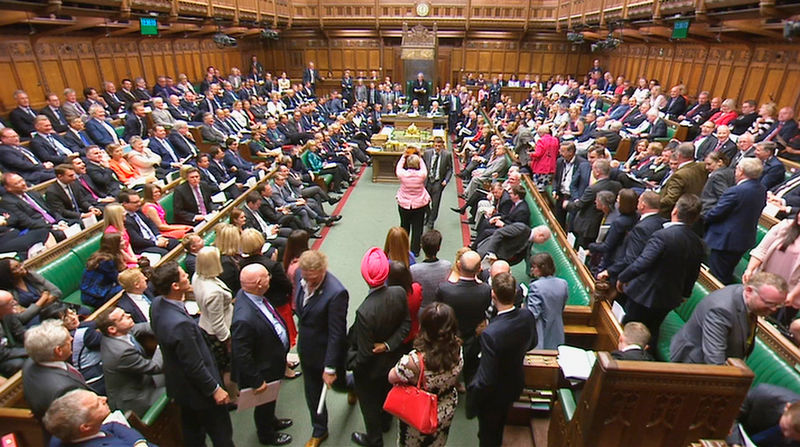Proactive Investors -
- Labour on track for largest win ever
- SNP trounced in Scotland
- Reform wins four seats
SNP down 38 seats
The Scottish National Party (SNP) has lost 38 seats in the general election so far, with one seat still to declare due to a recount.
Labour has made dramatic gains across the central belt, with most results showing a 20% vote swing from the SNP.
The Scottish Conservatives won five seats, down from six in 2019, but leader Douglas Ross failed to secure the Aberdeenshire North and Moray East seat.
First Minister of the SNP John Swinney called the result "very, very difficult and damaging".
"The Scottish National Party needs to be healed and it needs to heal its relationship with the people of Scotland, and I am absolutely committed to doing that," Swinney said.
A recount in Inverness, Skye, and West Ross-shire has been delayed due to a statistical discrepancy between verified and counted votes. The seat has seen a close contest between the SNP and the Scottish Liberal Democrats.
Labour has taken all six seats from the SNP in Glasgow.
Labour win sends FTSE 250, housebuilders higher
While the post-election reaction among the FTSE 100 set has been rather muted, the mid-cap FTSE 250 index has made strong gains.
The index, which comprises the 101st to 350th largest UK-listed companies by market capitalisation, has added over 250 points, or around 1.2%, to hit 20,861.
Not a year-to-date high, but only 40 points off.
UK housebuilders, meanwhile, are swooning over Labour’s comprehensive trouncing of the incumbent Conservatives.
Housebuilders currently comprise four of the five top FTSE 100 risers, with Persimmon PLC (LSE:LON:PSN) leading the charge by gaining more than 4%.
British political landscape overhauled
There are no two ways about it- the election was a comprehensive defeat for the Conservatives, with the party losing 249 seats as vote counting draws to an end.
It puts the Tories on just 119 seats currently, with Labour claiming 410.
Nigel Farage has claimed a number of victories for his right-wing Reform Party, with Farage himself winning in Clacton.
Reform has won four seats, as has The Green Party of England and Wales, while the Liberal Democrats will remain the third-largest party in the UK with 68 seats.
John Swinney's Scottish National Party, which has faced mounting divisions over leadership and the Gender Recognition Reform Bill, has been pushed aside amid a surge in support for Labour in the country.
The pound gained against the US dollar and euro in today’s Asia trading window in a post-election boost.
Markets appeared bolstered by the prospect of stability with a clear Labour majority following a tumultuous period of leadership by the ousted Tories.
Markets likely already prepared for Labour win
Markets have seen the opinion polls and are likely to have already priced in a crushing Labour win, and so if we end up with a small majority this would "perhaps be the unexpected – and least-favoured – outcome from the narrow perspective of investment," says AJ Bell investment director Russ Mould.
If a hefty Labour majority is the outcome, "there should be a relatively muted response from the pound, Gilt market and stock market on 5 July (and beyond)", says Mould.
"Financial markets usually give their quickest and most visceral judgements on a country’s economic and political stability (or otherwise) via its currency and the rate of interest at which they charge it to borrow through the bond markets."
He notes that sterling collapsed in the wake of the Brexit vote in 2016 and has never recovered the ground it lost, while the surge in the yield on 10yr Gilt bonds in 2022 "told you all you needed to know" about the market's feelings about Trussonomics.
After the less than impressive performance of the Tories, investors "could be in the mood to take the Sir Kier Starmer-Angela Rayner-Rachel Reeves ticket with equanimity", he adds.
A study of all sixteen of the general elections since the inception of the FTSE All-Share in 1962 shows that the UK stock market is "by no means frightened of a change in government and it may even welcome it", he said, with a double-digit percentage gain in the first year after an election where a new PM is ushered in.
A small Labour majority which gives some potential influence to the fringes of the party "could be a concern" if it hobbles the government in the way fractious in-fighting has done to Conservative administrations since 2010, Mould says.
"It could also be seen as a concern if the left of party is emboldened, and able, to hold out for more aggressive tax-and-spend policies, or gives unionised labour a chance to make more strident pay demands.
"From the selfish perspective of markets, these could be seen as inflationary and also potentially damaging to Labour’s promises to borrow and spend in a responsible manner.
"In this case, bond yields could go up (and if they stay there, take mortgage rates and broader borrowing costs with them) to the detriment of the economy and the incoming Government’s ability to spend, given the higher interest bill, which is already expected to come to a very uncomfortable £89 billion in 2024-2025, according to the OBR.
"Sterling could get a boost from higher bond yields, as higher returns on bonds tend to attract cash, but a stronger pound would probably upset the FTSE 100, given its overseas earnings, and also crimp exports."
Labour has promised not to increase income tax, VAT, NI or corporation tax, although it has said nothing on income tax thresholds, so has "very few levers to pull, barring capital gains tax reform on private equity and a windfall tax on oil and gas".
